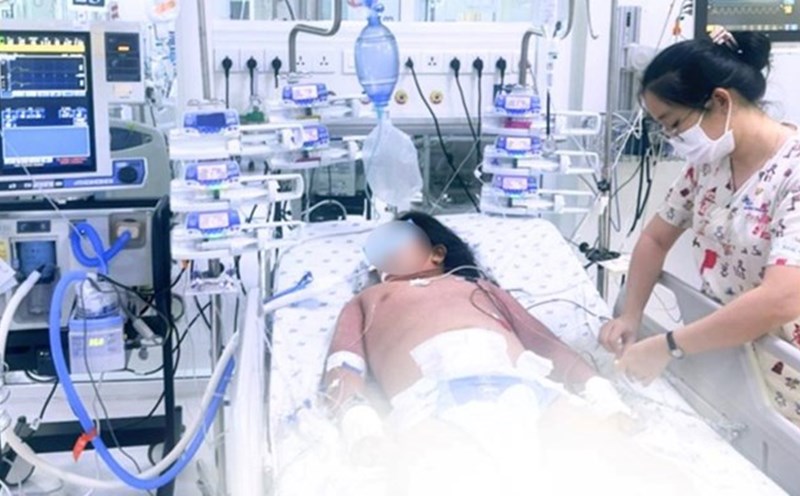At the online seminar with the theme: "Towards no more deaths from dengue fever: Prevention of the disease with integrated solutions" organized by the Health & Life Newspaper (under the Ministry of Health) in coordination with Takeda Vietnam Pharmaceutical Company Limited on June 14, Associate Professor, Dr. Pham Quang Thai, Deputy Head of the Department of Infectious Disease Control (Central Institute of Hygiene and Epidemiology) said that in the first 5 months of the year, the whole country recorded nearly 23,000 cases of dengue fever, including 5 deaths in Binh Duong, Binh Thuan, Khanh Hoa, Ho Chi Minh City and Ninh Thuan.
Dengue fever in Vietnam is becoming increasingly complicated, no longer following the 3-5 year cycle as before. The epidemic can break out all year round and widely, affecting all provinces and cities. In particular, the continuous high number of cases has caused the epidemic to exceed the forecast.
In Ho Chi Minh City, the number of cases in the first 5 months of the year increased by 134% over the same period, with 1.5% of severe cases. Epidemics tend to spread even in the dry season due to climate change and water storage. The Central Highlands and Central regions also recorded a significant increase. Khanh Hoa alone has had more than 1,600 cases in 74 outbreaks this year.
Dr. Pham Quang Thai also pointed out that Vietnam is currently considered a large dengue fever area in the Asia-Pacific region. To cope with the changing epidemic situation, Vietnam needs to change the approach from "detection - response" to the "expectation - prevention" model. Investing in proactive monitoring systems, data analysis and early warning is a key factor. This is an overall problem that includes mosquito control, limiting community infection, controlling vectors and boosting immunity through proactive vaccination.
Associate Professor, Dr. Do Duy Cuong, Director of the Institute of Tropical Medicine, Bach Mai Hospital, emphasized that dengue fever is still a major burden in Vietnam, with hundreds of thousands of cases each year. The disease develops unpredictably, can cause dangerous complications and death if not detected and treated promptly.
Many people are still subjective, thinking that Dengue fever is only dangerous when there is high fever or bleeding, leading to delays in treatment. However, many cases do not have obvious symptoms but are hospitalized late due to shock or multiple organ failure. Vaccination is considered a new, effective proactive disease prevention measure to deal with the complex nature of the disease.
Mr. Benjamin Ping, General Director of Takeda Pharmaceutical Company Limited, affirmed his commitment to accompanying Vietnam in controlling the dengue epidemic. He believes that there needs to be cross-sectoral coordination between the Government, the health sector, businesses and the community. The overall strategy includes improving medical capacity, raising public awareness of the dangers of the disease, and ensuring a long-term vaccine supply.
MSc. Dr. Vo Hai Son, Deputy Director of the Department of Prevention and Control (Ministry of Health), emphasized that no single force can solve the problem of dengue fever alone but needs to implement it synchronously. State management agencies play a coordinating and policy-making role. The community is the front line in detecting, treating early and handling small outbreaks right at households.... Only when these forces act proactively, unitedly and persistently, will the epidemic control strategy truly be effective in the long term. This is a series of solutions towards WHO's goal: no more deaths from dengue fever by 2030.











